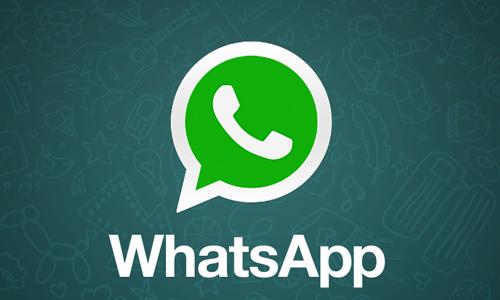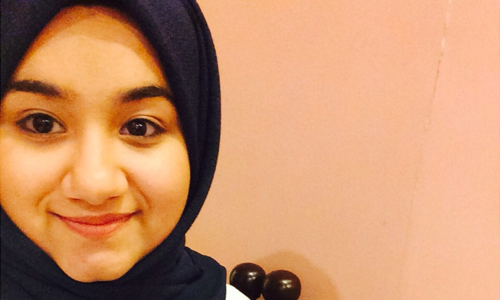What’sApp ‘sleaze finger’ faces controversy
The latest update of the global social media app What’sApp has stirred controversy among users in Bahrain lately, as it introduced new obscene images to reflect the users’ feelings in conversations.
The new update adds an inappropriate finger sign to the What’sApp’s large variety of emoticons (also known as emojis). The smart devices app is considered among the most popular in the world, with almost two billion downloads on both Android and IOS operated systems.
The large figure also shows that a huge segment of the app’s users are underage, making them exposed to the newly introduced insulting sign.
In Bahrain, opinions varied on how to deal with the new exposure, as some users called for adapting with the rapidly advancing technology, while others called to maintain the conservative traditions of the people of Bahrain.
Pros and cons
Speaking on the matter yesterday, International Social Media Club (ISMC) Bahrain Chapter Chairman Ali Sabkar said that “the advancement of technology will always continue and it’s difficult to live without adapting with it in the present time.”
He clarified that “each application has its advantages and disadvantages, but it doesn’t mean we have to completely boycott it. They’re very much needed, be it for communication or other purposes.”
“It’s more like an awareness matter than dealing with it technically. We must promote the appropriate ethics of using social media programmes, especially What’sApp,” he commented.
With regard to protecting children from the negative materials introduced on social media, the international social media expert confirmed that “educating children would be the best mean to protect them from harmful contents posted on social media.”
Sabkar opined that smart devices had become the need of the hour, pointing out that “it has become easy for teenagers to purchase smart phones as they’ve become very affordable.” He added: “Many parents prefer to keep such devices with their children to improve communication with them and be assured about their safety.”
“This particular emoticon isn’t considered as insulting in other countries. Not all users are conservative. We must familiarise ourselves with the latest technologies, in a way that is compatible with our religious beliefs and conservative traditions. In my opinion, this should be done by educating ourselves and our younger generations enough to maintain the specialty of our societies,” he added.
Controversy
In a telephone conversation, former MP and Islamic Scholar Dr. Salah Al Jowder said, “The Islamic religion instructs us to maintain good morals at all times. Hence, such insults are absolutely rejected. It’s also condemned by majority of moderated people, as such tools promote hatred, envy and sedition among humans.”
“During the past decades, the Bahraini culture was able to transform from a simple and closed community to an internationally recognisable society. This huge leap was made without harming our heritage and traditions. The world will never cease to develop. We will keep pace with it and maintain our traditions at the same time.”
As for the means to protect the society, especially younger generations, Dr. Al Jowder stressed that the majority of the responsibility fell on parents, schools, media and religious platforms.
He also called for lessening the use of social media among children and teenagers as “they pass through sensitive phases at this age and could be easily mislead”.
Dr. Al Jowder added, “Curricula should constantly improve, in line with the latest technology developments. We must acknowledge that it will not stop here, as more quaint technologies will continue to emerge from time to time, mainly in the field of information and communications.”
Simple solution
DT News visited University of Bahrain (UoB) to know what students thought about the new bold step taken by What’sApp.
Zainab Al Ghawas said, “Although I think emojis are one of the fun highlights for kids in What’sApp or any social media application, I don't think it’s that big of a deal, because parents and guardians can always simply remove the emoji keyboard that has inappropriate images from their children’s devices.” “Instead, they could install another emoji app for kids to use if they wanted to. I haven’t seen this particular emoticon so far in my IOS operated device and most people I’ve heard talk about this are Android users.”
Not suitable for kids
Sarah Faisal commented, “I think that children shouldn't be allowed to use What’sApp in the first place, even if it’s a method of communication. They're too young to use it and should invest their time in some beneficial educational or creative activities that are suitable for their age.”
She added, “About censoring it, I don't think it's necessary but if many people do feel uncomfortable with it, it can be removed. But I personally don't think it's a must.”
No ethics
Condemning the insulting emoji, another student, Mahmood Yousif said, “It has become clear to us now that the people in charge of the emoticons only care for profit. They don’t care that many ages below nine years of age are smart phone users these days.”
“I’ve heard some people say that it’s beneficial in a way where it simplifies cuss words while texting with just a visual aid, while others say there has already been inappropriate emoticons before this particular one, specifically the same sex couple friendly emoticons on What’sApp,” Yousif added.
Zainab Al Ghawas
Sabkar
Dr. Al Jowder
Related Posts




